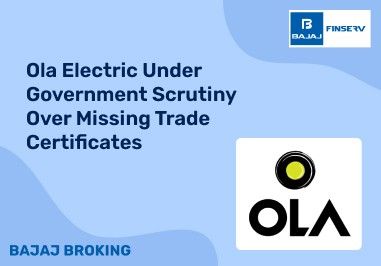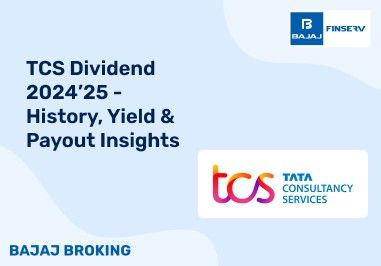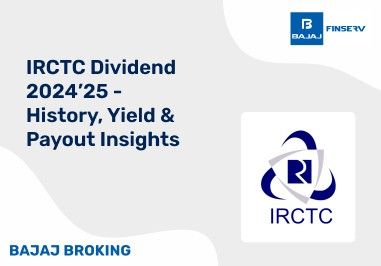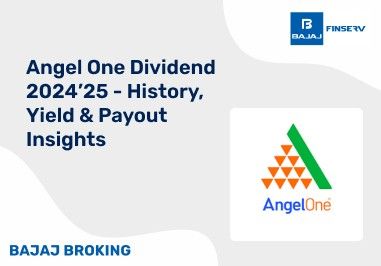Perpetual bonds, as the name suggests, have no fixed maturity date. Investors who purchase these bonds receive interest payments indefinitely, but the principal amount is not repaid by the issuer.
These bonds may be suitable for investors seeking a steady stream of interest payments and who are comfortable with their initial investment remaining with the issuer.
Perpetual bonds are typically issued by governments, banks, and select corporations. They are a specialized investment option, available to a limited set of investors and issuers.
In this blog, explore what perpetual bonds are, their potential benefits and risks, and key considerations for investors.
What is Perpetual Bond?
A perpetual bond is a kind of debt instrument with no term of maturity. If you have invested in a perpetual bond, you can never redeem your investment. Then, why should you invest in such a bond? A perpetual bond pays you a steady interest income forever. That’s why they are known as perpetual bonds.
As you can never redeem a perpetual bond, it is similar to an equity instrument because such instruments cannot be redeemed. However, in the case of a perpetual bond, the issuer is under a legal obligation to pay you interest forever, while in the case of equity, the issuer is under no such obligation. Now that you’ve understood what perpetual bonds are, let’s delve deeper into this topic.
Features of Perpetual Bonds
Infinite Coupon Payments
Perpetual bonds provide infinite coupon payments, guaranteeing investors a consistent stream of interest indefinitely. This feature appeals to those seeking reliable income, as coupon payments resemble dividends from equity but are assured, making them attractive for income-focused investors.
No Return of the Principal
Unlike traditional bonds, perpetual bonds do not return the principal amount to investors. This means that while coupon payments continue, investors must recognize the risk of not recovering their initial investment, significantly impacting long-term financial strategies and liquidity planning.
No Yield to Maturity (YTM)
Perpetual bonds lack a Yield to Maturity (YTM) because they do not have a defined maturity date. Instead, investors assess the current yield, which is calculated based on coupon payments relative to market price, influencing decisions related to perpetual debt instruments.
Embedded Call Option
Many perpetual bonds come with an embedded call option, allowing issuers to redeem them at predetermined intervals, typically after several years. This feature enhances liquidity for issuers but introduces uncertainty for investors regarding future cash flows, as it can terminate expected interest payments.
How do Perpetual Bonds Work?
As perpetual bonds are quite different from other instruments, we should thoroughly understand how they work. The fact that perpetual bonds do not repay the principal makes them an attractive instrument for issuers. However, precisely for this reason, investors should be careful about investing in such bonds.
When an investor invests in a perpetual bond, he is supposed to receive interest income forever. Even when that investor expires, his legal heirs are supposed to receive interest income and this goes on forever.
For investors, the only benefit of investing in such bonds is that they assure an interest income for perpetuity. As these bonds are not redeemable, an investor can never get his principal back. Let’s say that an investor invests in a perpetual bond with Rs. 1,000 face value at a 7% coupon rate. In this case, he will get Rs. 70 yearly interest forever but will never get Rs. 1,000 principal back.
However, there can be exceptions to it. Often perpetual bonds are callable. This means that their issuer has the option to redeem them at any point after a specific duration. For example, an organisation can issue a perpetual bond that can be redeemed at any time after the completion of five years from the issuing date.
Even in this case, the issuer has the option (not an obligation) to pay the principal at any time convenient to him after five years. Perpetual bonds are a niche type of instrument. If you invest in such bonds, you are expected to forget about your principal amount. Hence, you should have the utmost trust in the issuer.
As these bonds are not redeemable, investors feel comfortable investing in them only if they are issued by a reputed organisation. Therefore, only the government, government entities, banks, and some corporations issue such bonds.
Additional Read: Maturity Date
Do Coupon Payments Last Indefinitely?
Coupon payments from perpetual bonds theoretically last indefinitely, making them an attractive investment choice. With no maturity date, investors can expect regular interest payments as long as the issuer remains solvent. This feature parallels dividend payments from equity shares, appealing to those seeking stable income, particularly retirees.
However, the actual continuation of these payments depends on several factors. The issuing institution must maintain its financial health to fulfill its obligations. For banks, coupon payments can depend on profitability; if they face losses, they may defer payments. Thus, while perpetual bond meaning suggests ongoing returns, evaluating the issuer's creditworthiness is crucial for managing risks.
Additionally, many perpetual bonds include embedded call options that can impact the duration of coupon payments. Issuers may redeem the bonds after specific intervals, potentially terminating payments. Investors should be mindful of this dynamic when considering what is perpetual bond, as it introduces uncertainty into expected cash flows.
While perpetual bonds offer the potential for infinite coupon payments, investors should exercise caution. Thorough research into the issuer’s financial stability and an understanding of call options are essential. This approach enables investors to navigate the landscape of perpetual bonds in India effectively, balancing risk and reward in their portfolios.
Who Issues Perpetual Bonds?
Perpetual bonds are primarily issued by large financial institutions, including banks, corporations, and governments. These entities leverage perpetual debt as a means to raise capital without the obligation to repay the principal amount. For banks, perpetual bonds play a crucial role in enhancing their capital base, classified under Tier 1 capital. This allows them to meet regulatory requirements while maintaining a stable financial footing.
Corporations also issue perpetual bonds to fund significant projects or refinance existing debt. The appeal of these bonds lies in the higher yields they offer compared to traditional bonds with fixed maturities. Investors are often attracted to the steady income from coupon payments, aligning well with their financial objectives. Understanding what is perpetual bond in this context helps investors evaluate the risks and rewards associated with these instruments.
Governments, particularly those facing fiscal challenges, may use perpetual bonds to fund infrastructure projects or address budget deficits. While this approach allows governments to raise funds without immediate repayment obligations, it raises concerns among economists regarding long-term fiscal sustainability. Investors in perpetual bonds India should carefully assess the creditworthiness of the issuing government or entity to mitigate risks.
Various institutions issue perpetual bonds to leverage their unique features for capital raising. Investors should recognize the potential benefits of steady income while also being mindful of the associated risks. A thorough understanding of perpetual debt instruments, their issuers, and the market conditions can significantly enhance investment strategies in this area.
Why Investors Find Them Attractive
Investors are increasingly drawn to perpetual bonds for various reasons, primarily their potential for generating a stable income stream without the obligation of principal repayment. This makes them particularly appealing to those seeking long-term investments with consistent returns. The fixed coupon payments resemble dividends from equity shares, providing a reliable source of cash flow. Additionally, investors appreciate the relative stability and lower market risks associated with perpetual debt compared to equities, which can be volatile. However, the allure of these bonds is not just in their income generation but also in their flexibility, as many perpetual bonds come with embedded call options that provide liquidity to the issuer and can be advantageous for investors in certain market conditions.
Key Reasons Investors Find Perpetual Bonds Attractive:
Steady Income: Regular coupon payments create a reliable income stream, ideal for retirees and income-focused investors.
No Principal Repayment: Investors are not concerned about the principal amount being returned, which can simplify long-term financial planning.
Higher Yields: Perpetual bonds typically offer higher yields compared to conventional bonds to compensate for the lack of maturity.
Flexibility: The embedded call options provide issuers with the ability to redeem bonds under favorable conditions, which can enhance liquidity for investors.
Diversification: They serve as an effective tool for portfolio diversification, mitigating risks associated with market fluctuations.
This combination of attributes makes perpetual bonds an appealing choice for various investor profiles, particularly in the context of perpetual bonds India, where they can be an essential part of a diversified investment strategy.
How to Calculate the Price of a Perpetual Bond?
It’s pretty simple to calculate the price of a perpetual bond, as you need only two inputs for it. The first input is the fixed coupon interest. Let’s say that you get Rs. 1,000 per year interest from a perpetual bond. So, Rs. 1,000 is the first input.
The other input is the discount rate. In this case, the discount rate means the rate at which the time value of money gets eroded over a period of time, which is typically the rate of inflation. Assume that it is 5%. To calculate the price of a perpetual bond, you need to divide its yearly interest income from its discount rate, using this formula.
Price of perpetual bond = Annual interest / Discount rate = 1,000 / 0.05 = Rs. 20,000.
Advantages of Investing in Perpetual Bonds
Prominent advantages of investing in perpetual bonds are explained below:
Steady stream of income: When you invest in a perpetual bond, you get a fixed stream of income in the form of interest payments till perpetuity. If you are sure of the creditworthiness of the bond issuer, you can invest in such bonds and relax for the rest of your life because you will be getting fixed interest.
Get higher interest than other bonds: Typically, a perpetual bond offers higher interest than other bonds. If not for this feature, people wouldn’t invest in a perpetual bond.
Risks and Drawbacks of Perpetual Bonds
The risks associated with investing in perpetual bonds are described below:
Credit risk of the issuer: If the issuer of a perpetual bond goes insolvent, you won’t get interest income from such bonds. Hence, investors in such bonds are exposed to credit risk. You face a higher degree of this risk in perpetual bonds than in other bonds because your investment in such bonds is forever. Hence, you and your future generations should be concerned about the credit risk of the issuer forever.
Interest rate risk: These bonds offer a fixed rate of interest. Even if inflation moves up, you’ll get the same interest. If inflation for a certain period is higher than the interest you are getting on a perpetual bond, you’ll earn a negative rate of interest. Hence, you face interest rate risk while investing in perpetual bonds.
Call option can work as a disadvantage: Often perpetual bonds are callable, which means their issuer can redeem them after a specified period. The issuer can redeem them anytime after the said period is over, which brings in an element of uncertainty, which exposes investors to risk. For example, you may invest in a perpetual bond on a perpetual basis, but if it has a call option that’s exercisable after five years, the issuer can redeem it at any time after five years.
Perpetual Bonds vs. Other Fixed-Income Securities
The main differences between perpetual bonds and other fixed income bonds are explained below:
Criteria
| Perpetual Bonds
| Other Fixed-Income Securities
|
Term of maturity
| These bonds are issued for perpetuity. Hence, they don’t have a term of maturity.
| These securities are offered for a fixed term.
|
Principal repayment
| As these bonds are perpetual, their principal is not repayable. However, if the issuer exercises a call option, he has to pay back the principal to the investors.
| At the completion of their fixed term, the issuer of such securities is under a legal obligation to pay back the principal to the investors.
|
Issuer
| Such bonds are usually issued by the government, governmental agencies, banks, and a few corporations.
| Such bonds are issued by all kinds of issuers, including the government, public sector undertakings, private companies, etc.
|
Who Should Consider Investing in Perpetual Bonds?
The issuers of perpetual bonds don’t pay the principal back to the investors. However, they pay interest forever on such bonds. Hence, perpetual bonds are only meant for those investors who want to hold an investment for an extremely long period. Such investors should invest in perpetual bonds and mostly forget about them. After investing, the only two factors they should be concerned with are: whether they are receiving interest regularly and whether the interest income is higher than inflation.
If they are not getting interest income or if the inflation rate is considerably higher than the interest, they will have to find ways to deal with the problem. However, it may not be easy to find a solution to such a problem. Hence, investors are not advised to park a significant portion of their portfolio in perpetual bonds.
Conclusion
While it’s not difficult to understand the meaning of perpetual bonds, it’s important to appreciate that such bonds are not everyone’s cup of tea. In other words, not all investors find them suitable for investment. This is because not everyone invests for an extremely long period.
Those who want to invest in perpetual bonds should thoroughly analyse the creditworthiness of the issuer. If they are certain that the issuer can pay interest forever, they can consider investing in such bonds, if it suits their investment objective.
Disclaimer: Investments in the securities market are subject to market risk, read all related documents carefully before investing.
This content is for educational purposes only. Securities quoted are exemplary and not recommendatory.
For All Disclaimers Click Here: https://bit.ly/3Tcsfuc













